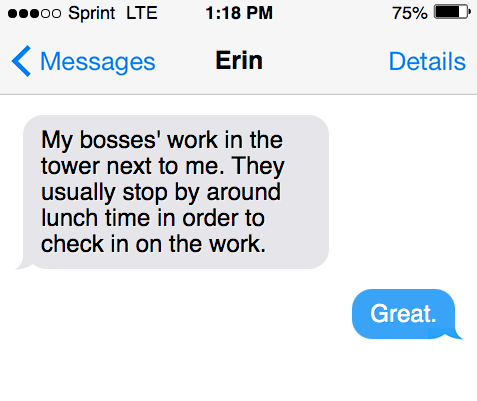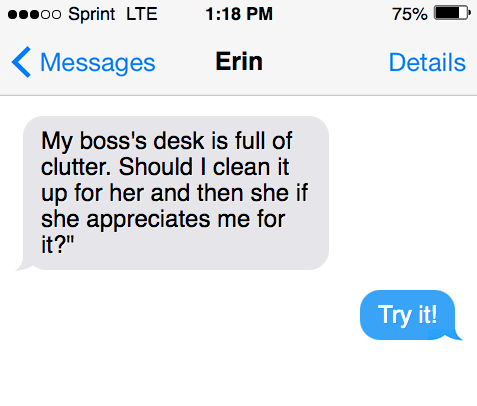Is it boss’s or bosses? How does someone correctly describe the plural possessive form of the word “boss?”
Understanding possessive forms in English grammar
Possessives are adjectives that indicate possession. For example, words like “my” or “her” are used to indicate possession. For example, “The record is her’s.” The apostrophe is used to indicate possession of the item, the record.
The apostrophe, followed by the “s” letter is used in names and nouns. For examples, “Jane’s cats are roaming the streets.”

Definition of a boss
Merriam-Webster defines “boss” as “a person who exercises control or authority, specifically, one who directs or supervises workers.”
A “boss” is typically a manager. In slang terms, a “boss” also means someone of authority. Or someone of power. For example, “She’s a boss.” This sentence could refer to the woman being a powerful and respected person.
The more typical way of using boss is in sentences like the following, “My boss owns a boat on the lake. And we’re going to go on it later.”
Common expressions include “My boss’s daughter, “boss’s day,” and “national boss’s day.”
| Word | Definition |
| Boss (noun) /bôs/ | a person who is in charge of a worker, group, or organization. |
“Bosses” definition
“Bosses” is simply the plural noun or the 3rd person present verb form of the word “boss.” It has the same meaning as the word “boss.”
Most commonly, employees refer to their manager when using the words “boss,” “boss’s,” and “bosses.”
Boss’s, bosses, bosses’s
The singular possessive form of “boss” is “Boss’s.” Because it is a one-syllable word, the plural possessive form of “boss” is “Bosses’.” The reason that “Boosses’s” is incorrect is because it sounds like too many “s” forms in a person’s mind.
| Form | Word |
| Singular possessive | Boss’s |
| Plural possessive | Bosses |
| Multiple plural possessive | Bosses’ |
Bosses’
More commonly used when referring to other plural nouns. For example, “My bosses’ names are John, Henry, and Ryan.”
The example shows that there are multiple bosses that we are referring to rather than one boss.
More examples
- “My bosses’ work in the tower next to me. They usually stop by around lunchtime to check in on the work.”
- “My bosses’ need to go to Indiana for the weekend. I will have to go with them to complete the audit with the proper information.”
Boss’s
The word “boss’s” is the first possessive form of “boss.” It means that there is only one boss we are referring to in the sentence. For example, “My boss’s wife is a wonderful woman.”
In this sentence example, we are referring to the singular form of the word “boss.” Meaning there is a reference to a possession. It could be the boss’s cat. Or the boss’s wife.
More examples
- “My boss’s boss is someone who everyone can respect. He’s happy that they could get him to work here.”
- “My boss’s desk is full of clutter. Should I clean it up for her and then see if she appreciates me for it?”
Bosses’
The final form of “boss.” We can say, “My boss’s happiness is very important to me. This is why I need to complete my work in a timely fashion by the end of the week.” Bosses’, in contrast, this is when we are referring to multiple bosses.
It is used far less in the English language. A correct phrase example would be, “My bosses’ need to know when the project is going to get completed.”

This sentence example shows one person communicating to another person, referring to the multiple bosses that are inquiring.
More examples
- “I’m at all of my bosses’ mercy this weekend. They are a group of people who love to work. Talking to them is exciting. And it will require all of my attention in order to achieve success.”
- “I’ll have to wait to speak with all of my bosses’ and learn what is acceptable for this project. I’d like to focus on the two main problems that are causing us to slow down.”
More examples
Incorrect: “My bossees’s studies made a drastic impact on the business. Now we have to study the entire document and learn each new rule.”
Correct: “My bosses’ studies made a drastic impact on the business. Now we have to study the entire document and learn each new rule.”
How to know which form to use
Follow the same rules as when referring to names. For example, “Jesus’ words” and “Charles’ job.” Most commonly, when choosing between “boss’s or “boss,” it will simply be the word “boss.”
For example, a typical sentence in American English is, “My boss needs to know when I will get this job completed. I need to stay through the weekend.”
When there is the intention to communicate or indicate possession in the plural form, it’s usually a word that ends in “s.” For example, “hers” and “her’s.” Words ending in “s” should have the “s” after the apostrophe redacting from the possessive forms.
Common questions
Questions and answers about the word “boss.”
How is “Boss’s Day” spelled? Boss’s Day or Boss’ Day?
Boss’s Day is typically observed on October 16th in the United States. When referring to this holiday, it is correctly spelled “Boss’s Day.”
On Boss’s Day, it’s a time to celebrate the manager. Give them a card, send a nice email, or give them a cake. This is a time to celebrate the boss of the company.
What is the plural form of “boss?”
The plural possessive form of boss is “Bosses’.”
What is the present tense form of “boss?”
The present participle form of boss is “bossing.” For example, “I am bossing someone around.”
What is a “Boss’s Boss” considered?
They are still a “boss.” Although considered a manager on a different “level.” Leveling is the term used to describe a company’s organizational structure. For example, “Vice President” is a type of position within a company’s organizational structure.
Some can refer to this as a “skip level.”
How do I pronounce the word “boss?”
BOSS is pronounced B-short o-S. It rhymes with loss, moss, Ross, toss.
What is a “term boss?”
A term boss is a person who exercises power over a union. Typically, over the union bosses. Similar to how a politician is voted into a party organization (“politicians” refers to the person who controls votes, dictates appointments, or legislative acts), the “term boss” is this type of supervisor for a union.
What is the correct grammar for “Happy Boss Day?”
The correct grammar would be, “Happy Boss’s Day!” If writing “happy” inside of another sentence, do not capitalize the “H” letter in the word “happy.”
Sources
- Boss Definition & Meaning – Merriam-Webster
- What Is a Plural Noun? | Thesaurus.com
- Present Tense Verbs in Third Person – English Grammar
- How to Pronounce BOSS and BUS – Tarle Speech
- Possessives : The Apostrophe – University of Sussex
- Possessive Forms
- Using Possessive Nouns | Kent State University
Inside this article
Fact checked:
Content is rigorously reviewed by a team of qualified and experienced fact checkers. Fact checkers review articles for factual accuracy, relevance, and timeliness. Learn more.
Core lessons
Glossary
- Abstract Noun
- Accusative Case
- Anecdote
- Antonym
- Active Sentence
- Adverb
- Adjective
- Allegory
- Alliteration
- Adjective Clause
- Adjective Phrase
- Ampersand
- Anastrophe
- Adverbial Clause
- Appositive Phrase
- Clause
- Compound Adjective
- Complex Sentence
- Compound Words
- Compound Predicate
- Common Noun
- Comparative Adjective
- Comparative and Superlative
- Compound Noun
- Compound Subject
- Compound Sentence
- Copular Verb
- Collective Noun
- Colloquialism
- Conciseness
- Consonance
- Conditional
- Concrete Noun
- Conjunction
- Conjugation
- Conditional Sentence
- Comma Splice
- Correlative Conjunction
- Coordinating Conjunction
- Coordinate Adjective
- Cumulative Adjective
- Dative Case
- Determiner
- Declarative Sentence
- Declarative Statement
- Direct Object Pronoun
- Direct Object
- Diction
- Diphthong
- Dangling Modifier
- Demonstrative Pronoun
- Demonstrative Adjective
- Direct Characterization
- Definite Article
- Doublespeak
- False Dilemma Fallacy
- Future Perfect Progressive
- Future Simple
- Future Perfect Continuous
- Future Perfect
- First Conditional
- Irregular Adjective
- Irregular Verb
- Imperative Sentence
- Indefinite Article
- Intransitive Verb
- Introductory Phrase
- Indefinite Pronoun
- Indirect Characterization
- Interrogative Sentence
- Intensive Pronoun
- Inanimate Object
- Indefinite Tense
- Infinitive Phrase
- Interjection
- Intensifier
- Infinitive
- Indicative Mood
- Participle
- Parallelism
- Prepositional Phrase
- Past Simple Tense
- Past Continuous Tense
- Past Perfect Tense
- Past Progressive Tense
- Present Simple Tense
- Present Perfect Tense
- Personal Pronoun
- Personification
- Persuasive Writing
- Parallel Structure
- Phrasal Verb
- Predicate Adjective
- Predicate Nominative
- Phonetic Language
- Plural Noun
- Punctuation
- Punctuation Marks
- Preposition
- Preposition of Place
- Parts of Speech
- Possessive Adjective
- Possessive Determiner
- Possessive Case
- Possessive Noun
- Proper Adjective
- Proper Noun
- Present Participle
- Prefix
- Predicate



